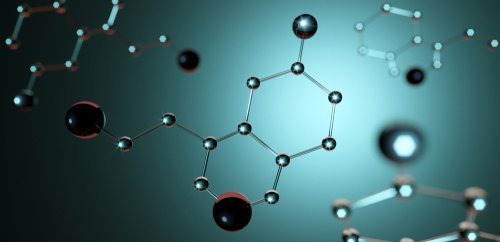
Testosterone isn’t just a male hormone; it plays a crucial role in women’s health as well. Although women have lower levels of testosterone compared to men, it’s essential for various bodily functions, including muscle strength, bone density, and libido. As women age or face certain health conditions, their testosterone levels can drop, leading to a range of symptoms. That’s where Testosterone Replacement Therapy (TRT) comes in. Let’s dive into how TRT can benefit women and what you should consider if you're thinking about this treatment.
Understanding Testosterone's Role in Women
Testosterone is often associated with men, but it’s also vital for women. It helps with energy levels, mood regulation, and overall well-being. Women produce testosterone in their ovaries, adrenal glands, and peripheral tissues. As women age, especially during perimenopause and menopause, testosterone levels naturally decline, which can affect their quality of life.
The Importance of Testosterone for Women
- Energy and Vitality: Adequate levels of testosterone contribute to higher energy levels and reduced fatigue.
- Sexual Health: Testosterone plays a key role in libido and sexual arousal.
- Muscle and Bone Health: It helps maintain muscle mass and bone density, which can prevent osteoporosis.
Benefits of Testosterone Replacement Therapy for Women
TRT isn’t just for men; women can benefit from it too. Here’s how:
Improved Libido and Sexual Function on TRT
A decrease in testosterone can lead to reduced sexual desire and arousal. TRT can help restore libido and improve sexual satisfaction.
Restoring Desire
By increasing testosterone levels, many women find that their sexual desire improves, leading to a more satisfying sex life. This can be particularly beneficial for women experiencing sexual dysfunction due to hormonal imbalances.
Enhanced Mood and Mental Clarity on TRT
Low testosterone levels can contribute to mood swings, irritability, and decreased mental clarity. TRT can help stabilize mood and enhance cognitive function.
Mood Stabilization
Women on TRT often report feeling more emotionally balanced and less anxious or depressed. This can significantly improve overall quality of life and mental well-being.
Increased Energy Levels wiht TRT
Fatigue and lack of motivation are common complaints among women with low testosterone levels. TRT can help boost energy and improve overall vitality.
Feeling Energized
With balanced testosterone levels, many women experience increased energy and motivation, making it easier to stay active and engaged in daily activities.
Improved Muscle Strength and Bone Density with TRT
Testosterone helps maintain muscle mass and bone strength. Low levels can lead to muscle weakness and an increased risk of osteoporosis.
Strength and Stability
TRT can help enhance muscle strength and support bone health, which is particularly important for older women who are at higher risk for fractures and falls.
How TRT is Administered for Women
Testosterone Replacement Therapy for women can be administered in several ways, each with its own set of benefits and considerations:
Testosterone Topical Gels and Creams
These are applied to the skin and are a popular choice for hormone therapy.
Ease of Use
Topical treatments are convenient and can be easily adjusted based on dosage needs. However, they may cause skin irritation in some users.
Testosterone Injections
Testosterone can be administered through regular injections, which can be done at a healthcare provider’s office or at home.
Effectiveness
Injections offer a direct and effective way to increase testosterone levels but require regular visits to a healthcare provider or the ability to self-administer.
Testosterone Patches
Hormone patches are applied to the skin and release a steady amount of testosterone over time.
Steady Hormone Levels
Patches provide a consistent dose of testosterone, which can be beneficial for maintaining stable hormone levels.
Testosterone Pellets
Testosterone pellets are implanted under the skin and release testosterone slowly over several months.
Long-Term Solution
Pellets offer a long-lasting solution with fewer administration requirements but may involve a minor surgical procedure for insertion.
Potential Side Effects of TRT in Women
Like any therapy, TRT for women can come with potential side effects:
Acne and Oily Skin from Testosterone
Increased testosterone can lead to acne or oily skin, similar to the effects seen in men.
Managing Skin Issues
Using gentle skincare products and consulting with a dermatologist can help manage these side effects.
Hair Growth from Testosterone
TRT may cause unwanted hair growth on the face or body.
Hair Management
If hair growth becomes a concern, discuss options with your healthcare provider. They may adjust your dosage or recommend treatments to manage this side effect.
Voice Changes from Testosterone
Though rare, high levels of testosterone can sometimes cause voice deepening.
Monitoring Changes
Voice changes should be monitored, and adjustments to your treatment plan can be made if needed.
Mood Changes from Testosterone
While TRT can improve mood for some, it can also cause irritability or mood swings in others.
Emotional Well-Being
Regular check-ins with your healthcare provider can help manage and address any mood changes.
Conclusion
Testosterone Replacement Therapy can offer significant benefits for women experiencing low testosterone levels. From improving libido and mood to enhancing energy and muscle strength, TRT can help restore balance and improve quality of life. However, it's important to be aware of potential side effects and work closely with a healthcare provider to find the right treatment plan for you.
If you’re considering TRT or have questions about how it might benefit you, don’t hesitate to reach out to a healthcare professional. They can provide personalized guidance and help you navigate this treatment to achieve the best results for your health and well-being.
Dr. Christian Jacob Del Rosario
Contact Me


